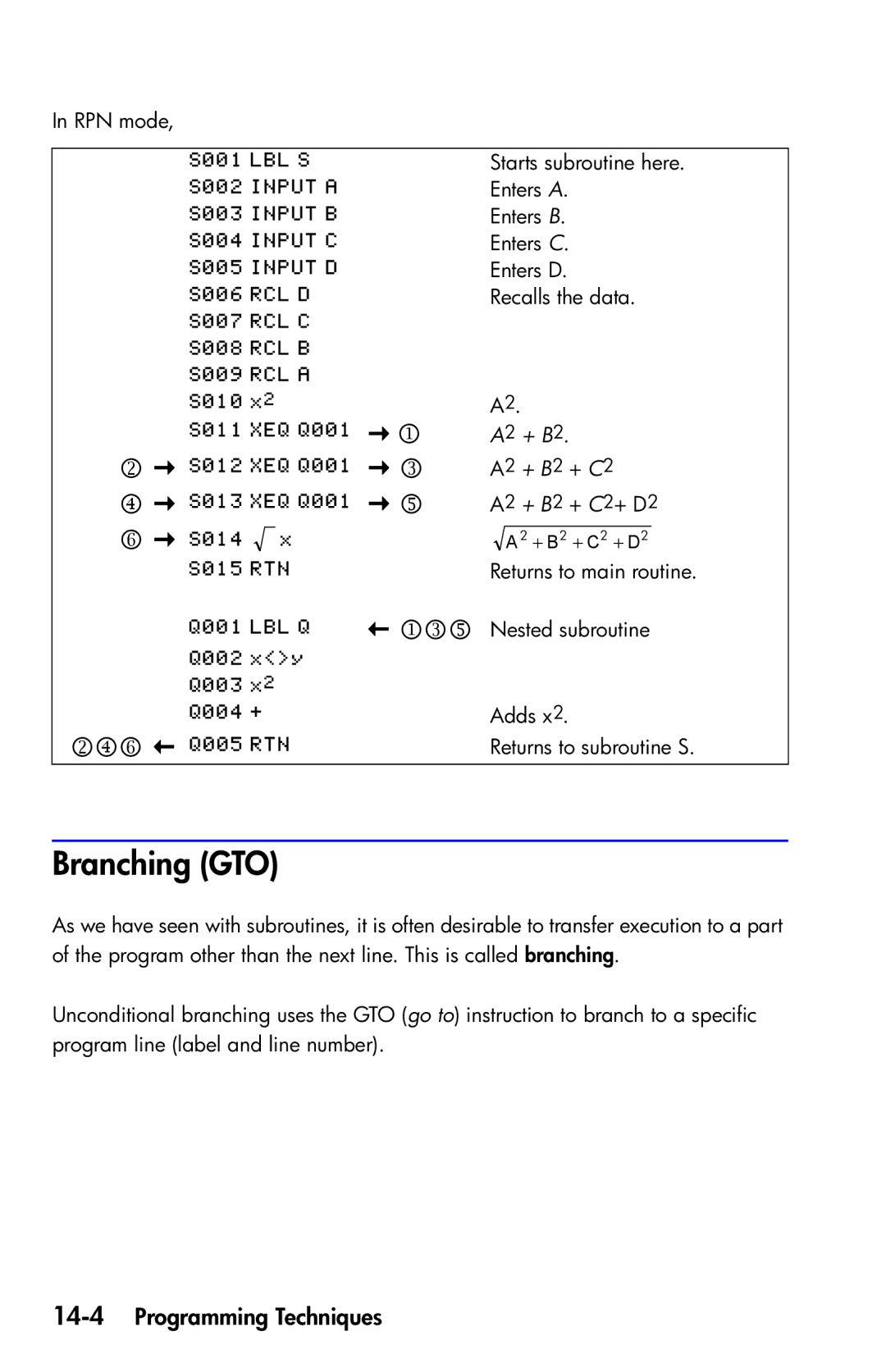
In RPN mode,
| | |
| Starts subroutine here. |
| | |
| Enters A. |
| | |
| Enters B. |
| | |
| Enters C. |
| | |
| Enters D. |
| | |
| Recalls the data. |
| | |
|
|
| | |
|
|
| | |
|
|
| | |
| A2. |
| | | 1 | A2 + B2. |
2 | | | 3 | A2 + B2 + C2 |
4 | | | 5 | A2 + B2 + C2+ D2 |
6 | | |
| A2 + B2 + C2 + D2 |
| | |
| Returns to main routine. |
| | | 135 | Nested subroutine |
| | |
|
|
| | |
|
|
| | |
| Adds x2. |
246 |
| Returns to subroutine S. | ||
Branching (GTO)
As we have seen with subroutines, it is often desirable to transfer execution to a part of the program other than the next line. This is called branching.
Unconditional branching uses the GTO (go to) instruction to branch to a specific program line (label and line number).
